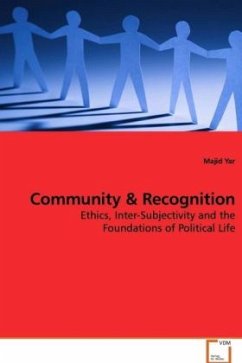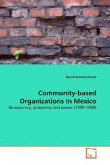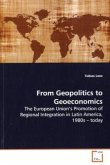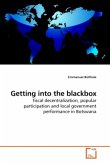The idea of community has been a consistent feature
of recent academic and public discourse. Just what
this term might mean, however, is the subject ongoing
dispute amongst social and political thinkers. This
book offers a wide-ranging exploration of the
prolematique of community as it has featured in both
ancient and modern thought. Through discussion of the
philosophies of Aristotle, Aquinas, Rousseau, Hobbes,
Kant, Hegel, Heidegger, Derrida, Levinas and others,
the contours of modernity's attempts to imagine
community are excavated. Drawing upon the recent
revival of interest in Hegel's 'theory of
recognition', it offers an original theorisation of
community, one that seeks to reconcile the seemingly
conflicting demands of freedom and belonging. Such a
theory, it is argued, is capable of simultaneously
attending to the demands of solidarity, difference
and critique, and as such is attuned to the complex,
pluralistic and reflexive character of late modern
societies.
of recent academic and public discourse. Just what
this term might mean, however, is the subject ongoing
dispute amongst social and political thinkers. This
book offers a wide-ranging exploration of the
prolematique of community as it has featured in both
ancient and modern thought. Through discussion of the
philosophies of Aristotle, Aquinas, Rousseau, Hobbes,
Kant, Hegel, Heidegger, Derrida, Levinas and others,
the contours of modernity's attempts to imagine
community are excavated. Drawing upon the recent
revival of interest in Hegel's 'theory of
recognition', it offers an original theorisation of
community, one that seeks to reconcile the seemingly
conflicting demands of freedom and belonging. Such a
theory, it is argued, is capable of simultaneously
attending to the demands of solidarity, difference
and critique, and as such is attuned to the complex,
pluralistic and reflexive character of late modern
societies.








